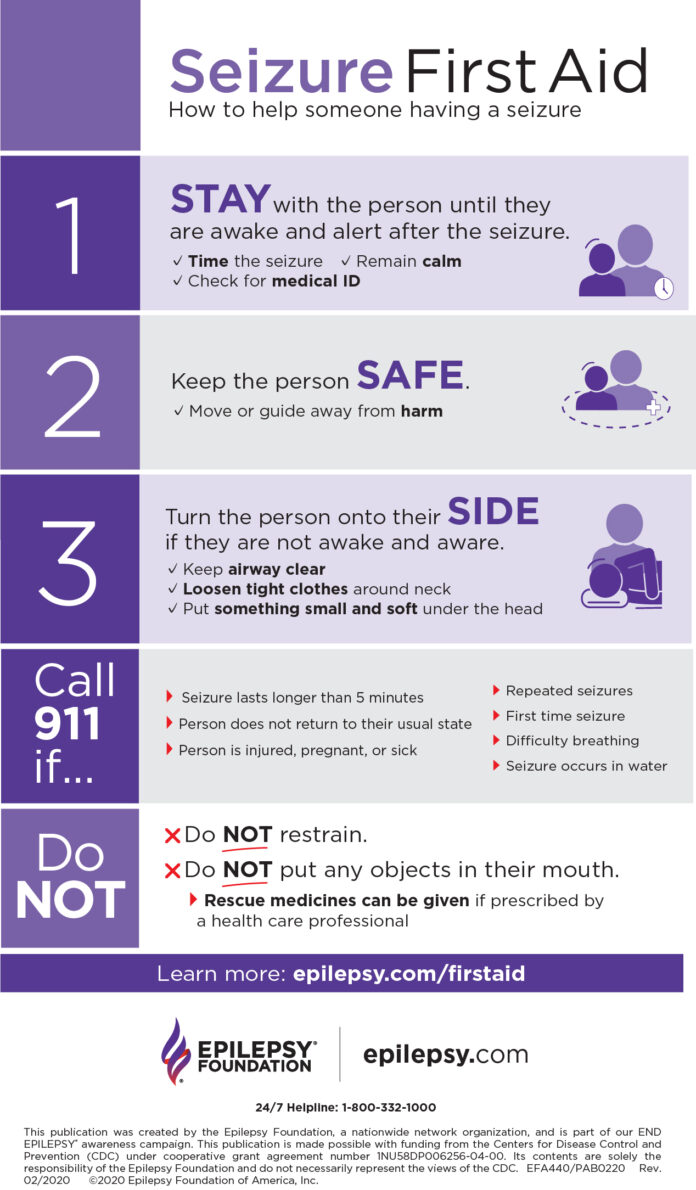All college students have their ups and downs throughout their academic careers. The all-nighters and the dead weeks are some of the downs, but making new friends and celebrating new milestones are some of the ups. It seems like a written-out script of what an undergraduate may or may not endure while getting a Bachelor’s degree.
But what if I were to tell you there’s a little twist in this subtle script for some students? Most undergraduates on TV or in movies don’t have to endure different brain conditions, but about 1 in 26 people will develop epilepsy at some point in their life. In 2021, there were 15.8 million students registered to undergraduate programs in the United States. This means that 608 thousand students in the United States either have or will develop epilepsy in their lifetime, and it impacts one’s college experience tremendously.
But PLU is not doing enough to help these students.
“I think it’s something as an institution we can’t ignore,” said Austin Beiermann with the PLU Office of Accommodations, “and we need to be there to provide support to these people.”
Epilepsy is a neurological condition that sends electrical signals throughout the brain to trigger seizures. There are three categories of seizures: focal seizures, those occurring on one side of the brain; generalized seizures, those occurring on both sides of the brain; and unknown onset seizures, those where the beginning of the seizure is unknown.
“It’s a wide range,” said Beiermann, “every student and person’s experience with epilepsy varies depending on the frequency of seizures and the length.” As an epileptic student myself, I can affirm this. The types of seizures you have — whether they impair your awareness or your motor ability — can dictate how epilepsy affects you. I have tonic-clonic seizures, also known as grand mal seizures, which mean I would tense up, collapse, and shake; obviously, a type of seizure messing with my motor ability.
“Definitely sounds like somebody with epilepsy could have academic accommodations,” Erin Hohman from the PLU Health Center said. “I feel like that would be an important piece.”
Obviously, seizures impact college students and their success. Missing classes or losing homework and study time because of the toll on the body or potential injuries is detrimental to a student’s education. Ironically, though, the college environment can help trigger seizures. Some common triggers include, but are not limited to, exhaustion, stress, and not eating well. These appear quite naturally in a stereotypical college student’s life.
It’s recommended that college students get 7-9 hours of sleep, but plenty of students will say that they’ve pulled all-nighters or stayed up until 2 a.m. just to get up for an 8 a.m. class. The sleep-deprived college student is almost a joke. Some of this may come from binge-watching TV shows, but for the most part, it’s the result of a college student’s workload. Epileptic students can’t deal with this lack of sleep unless they would like to seize the next day.
Not only does sleep impact school, but it is a struggle for someone just trying to be an everyday twenty-year-old. “Sleep deprivation can increase the risk of seizures… so I could see maybe not being able to do some of the activities somebody wants to do like going to parties, hanging out with friends, or staying up late,” said Hohman. I know throughout school, I was the least stressed when I improved my sleep schedule, but on the weekends, when most kids are having the time of their lives, I’m constantly watching the clock. Nights when I have nothing to do the following morning are great because I don’t have to worry about when I go to sleep; I can just enjoy my night.
With classes with millions of due dates stacked on top of each other, it’s easy for anyone registered to stress out. Epileptic students get to deal with the brunt of seizing just because they worried a little too much about a grade. Simply caring about one’s education can trigger seizures.
Dailyn Cooks, a student whose mother has epilepsy, said that she seizes when she’s stressed or has big emotions. “I find it interesting because I didn’t know that could be a cause,” said Cooks.
But there’s not only stress on the academic side; the social side can be stressful too. Whether we want to admit it or not, all the majority of us want to do is fit in. How is that easy to do when one has to confess they have the possibility of seizing? It seems easier to hide it, but then that creates the stress of one’s safety. It’s difficult enough for me to let my professors know about my condition. Stepping out and telling friends is different. It’s a double-edged sword stabbing at epileptic students simply wanting to make friends.
The interesting part is that there aren’t enough people educated about seizure protocol. Cooks recalled that last year “somebody was seizing outside Rieke, and nobody knew really what to do.” She brings up how if there’s more education on seizure protocol or just awareness of the condition in general, we could help so many people.
PLU provides mandatory hazing training every year; something similar to educate people about seizure protocol would be a good way to get this important information out to students. The Epilepsy Foundation has a three-step awareness program called “Stay Safe Side,” which PLU could easily adopt. “You get here and you’re 6 weeks in, you don’t even know where your classes are yet half the time… you’re not born with the knowledge of how to respond,” said Beiermann.
College isn’t easy for anyone, but throwing the occasional seizure on one’s schedule isn’t helpful. Even with certain aspects of college contributing to their condition in negative ways, in the end, there’s always the greatest positive everyone can brag about: a degree, something they earned just as much as everyone else.
To educate yourself about the condition, visit The Epilepsy Foundation (https://www.epilepsy.com/).


















